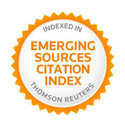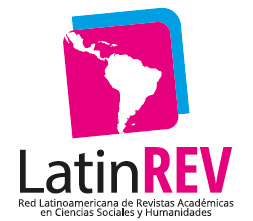Dinámicas raciales en Facebook
Un estudio de los movimientos políticos de derecha en Portugal
Resumen
La racialización es un proceso por el cual la pertenencia a una determinada raza es socialmente construida y atribuida a ciertos individuos o grupos humanos con base en características intrínsecas, como el color de piel, el origen étnico-cultural o el fenotipo. Este fenómeno, como un mecanismo discriminatorio, sirve de base para la propagación y reafirmación de prejuicios, exclusiones, favoritismos y discursos de odio, especialmente en la era actual, en la que las tecnologías digitales amplifican estos procesos políticos polarizadores. Así, este artículo analiza la racialización presente en los movimientos políticos de derecha en Facebook, basándose en la actualización de un estudio anterior sobre el tema. El análisis adopta un enfoque cuantitativo, que implica la extracción, tratamiento y visualización de datos de dos páginas ampliamente reconocidas en Portugal: Nova Portugalidade y Associação Portugueses Primeiro. La muestra cubre un período de 8 años, desde el 1 de enero de 2017 hasta el 1 de enero de 2024, abarcando un total de 3.740 publicaciones. Los resultados indican un notable crecimiento del movimiento nacionalista portugués en Facebook. Sin embargo, en comparación con el estudio original, parece haber una tendencia a la disminución o a la estabilización de dicho crecimiento en los últimos tres años. Las antiguas colonias africanas y sus pueblos son objeto de encuadres raciales, y son víctimas frecuentes de ataques directos de odio.
Descargas
Citas
Avraamidou, M. y Eftychiou, E. (2022). Migrant Racialization on Twitter during a border and a pandemic crisis. International Communication Gazette, 84(3), 227-251. https://doi.org/10.1177/17480485211054301.
Bartlett, J., Reffin, J., Rumball, N. y Sarah Williamson. (2014). Anti-social media. Demos. http://cilvektiesibas.org.lv/site/record/docs/2014/03/19/DEMOS_Anti-social_Media.pdf.
Berti, C. y Loner, E. (2023). Character assassination as a right-wing populist communication tactic on social media: The case of Matteo Salvini in Italy. New Media & Society, 25, 2939-2960. https://doi.org/10.1177/14614448211039222.
Boisard, S. (2020). Del totalitarismo al populismo: el enemigo antiliberal en el discurso de derecha. En: Pinto, A. C. y Gentile, F. (2020). Populismo: Teorias e casos (pp. 32-56). EdMeta.
Castells, M. (2009). The power of identity. Wiley-Blackwell.
Davis, S. y Straubhaar, J. (2020). Producing antipetismo: Media activism and the rise of the radical, nationalist right in contemporary Brazil. International Communication Gazette, 82, 82-100. https://doi.org/10.1177/1748048519880731.
Di Fátima, B. (2023). Hate speech on social media: A global approach. LabCom Books & EdiPUCE.
Di Fátima, B. (2024). Disinformation and polarization in the algorithmic society. Online Hate Speech Trilogy (Vol I). LabCom Books & Editorial Universidad Icesi.
Di Fátima, B. y Carvalheiro, J.R. (2024). One’s heaven can be another’s hell: A mixed analysis of Portuguese nationalist fanpages. Social Science, 13(1), 1-16. https://doi.org/10.3390/socsci13010029.
Duffy, M. E. (2003). Web of hate: A fantasy theme analysis of the rhetorical vision of hate groups online. Journal of Communication Inquiry, 27, 291-312. https://doi.org/10.1177/0196859903252850.
Eriksen, T. H. (2007). Nationalism and the Internet. Nations and Nationalism, 13(1), 1-17. https://doi.org/10.1111/j.1469-8129.2007.00273.x.
Fan, C. (2023). Understanding and citing CrowdTangle data. CrowdTangle. https://help.crowdtangle.com/en/articles/4558716-understanding-and-citing-crowdtangle-data.
Fan, L., Yu, H. y Gilliland, A. J. (2023). Aggravated anti-Asian hate since Covid-19 and the #stopasianhate movement: Connection, disjointness, and challenges. En: Di Fátima, B. (2023). Hate speech on social media: A global approach (pp. 35-74). LabCom Books & EdiPUCE.
Ferrugem, D. (2022). A racialização como estruturante da questão social: Entre silêncios e insurgências na produção de conhecimento em serviço social (Tese de Doutoramento). Pontifícia Universidade Católica do Rio Grande do Sul (PUCRS). https://tede2.pucrs.br/tede2/handle/tede/10518.
Fragoso, S., Recuero, R. y Amaral, R. (2011). Métodos de pesquisa para Interent. Editora Sulina.
Fuchs, C. (2020). Nationalism on the Internet: Critical theory and ideology in the age of social media and fake news. Routledge.
Gans, H. J. (2017). Racialization and racialization research. Ethnic and Racial Studies, 40(3), 341-352. https://doi.org/10.1080/01419870.2017.1238497.
Hervik, P. (2021). Racialization, racism, and antiracism in Danish social media platforms. En: Udupa, S., Gagliardone, I. y Hervik, P. (2021). Digital hate: The global conjuncture of extreme speech (pp. 131-145). Indiana University Press.
Hochman, A. (2018). Racialization: A defense of the concept. Ethnic and Racial Studies, 42(8), 1245-1262. https://doi.org/10.1080/01419870.2018.1527937.
Lajosi, K. y Nyíri, P. (2022). Introduction: The transnational circulation of digital nationalism. Nations and Nationalism, 28, 263-66. https://doi.org/10.1111/nana.12778.
Madeira, B. (2023). A direita radical portuguesa, o fim do império e as aspirações neocoloniais (1976-1980). Revista de História das Ideias, 41(2), 273-294. https://doi.org/10.14195/2183-8925_41_12.
Marchi, R. (2010). At the roots of the new right-wing extremism in Portugal: The National Action Movement (1985-1991). Totalitarian Movements and Political Religion, 11(1), 47-66. https://doi.org/10.1080/14690764.2010.499670.
Marchi, R. (2016). À direita da direita: O desafio da extrema-direita à democracia portuguesa. En: Marchi, R. (2016). As direitas na democracia portuguesa: Origens, percursos, mudanças e novos desafios (pp. 219-49). Texto.
Marchi, R. (2023). Political mobilisation amongst the new and old radical right in democratic Portugal. En: Kondor, K. y Littler, M. (2023). The Routledge handbook of far-right extremism in Europe (pp. 117-128). Routledge.
Meta. (2024). CrowdTangle. Transparency Center. https://transparency.meta.com/pt-br/researchtools/other-datasets/crowdtangle/.
Mihelj, S. y Jiménez-Martínez, C. (2021). Digital nationalism: Understanding the role of digital media in the rise of ‘new’ nationalism. Nations and Nationalism, 27(2), 331-346. https://doi.org/10.1111/nana.12685.
Miranda, S., Malini, F., Di Fátima, B. y Cruz, J. (2022). I love to hate! The racist hate speech in social media. Paper presented at 9thEuropean Conference on Social Media, Krakow, Poland, May 12-13.
Omi, M. y Winant, H. (2015). Racial formation in the United States. Routledge.
Parlamento Europeo. (2016). Reglamento General de Protección de Datos (2016/679). https://eur-lex.europa.eu/ES/legal-content/summary/general-data-protection-regulation-gdpr.html.
Smith, A. (1997). A identidade nacional. Gradiva.
Zúquete, J. P. (2020). Para além do populismo: A defesa da identidade branca na Europa Ocidental. En: Pinto, A. C. y Gentile, F. (2020). Populismo: Teorias e casos (pp. 57-75). EdMeta.
Derechos de autor 2025 Branco Di Fátima, José Ricardo Carvalheiro

Esta obra está bajo licencia internacional Creative Commons Reconocimiento-NoComercial-CompartirIgual 4.0.
Los autores conservan los derechos de autor y garantizan a la revista el derecho de ser la primera publicación del trabajo. En caso de que puedan publicar en otra revista una traducción del artículo ya publicado en Austral Comunicación, se pide dejar constancia en la versión traducida sobre la publicación original.
La licencia utilizada es CC BY-NC-SA, que permite compartir (copiar y redistribuir el material en cualquier medio y formato) y adaptar (remezclar, transformar y construir sobre el material) bajo los siguientes términos: atribución (reconocer la autoría) y no comercial (no se puede utilizar el material para fines comerciales). Actualización: 1 de febrero de 2022.
Austral Comunicación permite al autor(es) retener los derechos de publicación sin restricciones.











































